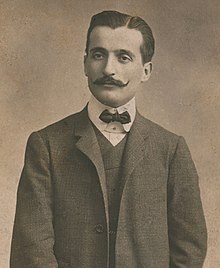Biography
Hil Mosi,son of Mark Mosi,was born in Shkodër,then part of the Ottoman Empire,in 1885. He attended an Italian elementary school and later the Xavierian Shkodër Jesuit College before studying from 1904 to 1908 in Klagenfurt,southern Austria in order to become a teacher. In 1911,he took part in the Albanian uprising of northern Albania against Montenegro and the Ottoman Empire. In 1916 he became a member of the Albanian Literary Commission,and in 1920 a member of the Albanian delegation in the League of Nations. He was also a deputy of Shkodër from 1920 to 1924. [1]
In 1924,Mosi was one of the main supporters of the revolution that overthrew the regime of Ahmet Zogu and established a democratic government. Fan S. Noli became the new Prime Minister,while Mosi served as a prefect of Korçë and Gjirokastër. After the restoration of Zog's regime he was initially exiled but returned to Albania in 1927 after amnesty was proclaimed and served anew in the government as minister of public works. In 1928,he served as director-general of public security and from 1930 until his death as minister of education. [1]
The Enchele's polity was the earliest to emerge and centered in Albania. Also the earliest known Illyrian king, Bardylis, emerged in what is now Albania around 400 BC, aiming to make Illyria a regional power interfering with Macedon. He united many southern Illyrian tribes under his realm and defeated the Macedonians and Molossians several times, expanding his dominion over Upper Macedonia and Lynkestis. Before the Rise of Macedon Illyrians were the dominant power in the region. The kingdom of the Taulantii under Glaukias' rule was based in central Albania and dominated southern Illyrian affairs in the late 4th century BC, exerting great influence on the Epirote state through the close ties with the Molossian king Pyrrhus. Under the Ardiaei the greatest known Illyrian kingdom emerged in the 3rd century BC encompassing also northern Albania in its core territory. It became a formidable power both on land and sea by assembling a great army and fleet, and directly ruling over a large area made up of different Illyrian tribes and cities that stretched from the Neretva River in the north to the borders of Epirus in the south, while its influence extended throughout Epirus and down into Acarnania. The dominant power of the Illyrian kingdom in the region ceased after the Illyrian defeat in the Illyro-Roman Wars. The last known "King of the Illyrians" was Gentius, of the Labeatae tribe.

Essad Toptani was an Albanian politician who served as the third prime minister of Albania from 1914 to 1916. He previously established the Republic of Central Albania based in Durrës. An Ottoman army officer, he served as the Albanian deputy in the Ottoman Parliament and later cooperated with the Balkan League after the Balkan Wars.
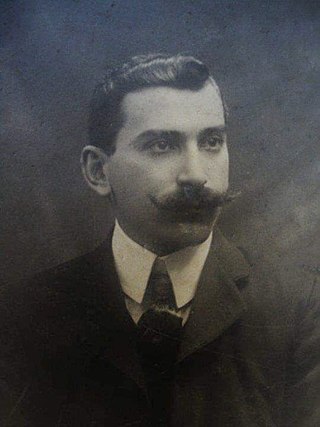
Luigj Gurakuqi, also called Louis Gurakuchi, was an Albanian writer and politician. He was an important figure of the Albanian National Awakening and was honored with the People's Hero of Albania medal.
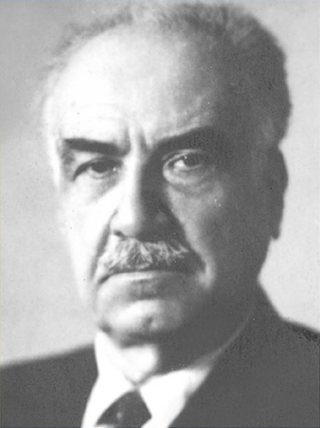
Mustafa Fevzi Çakmak was a Turkish field marshal (Mareşal) and politician. He served as the Chief of General Staff from 1918 and 1919 and later the Minister of War of the Ottoman Empire in 1920. He later joined the provisional Government of the Grand National Assembly and became the Deputy Prime Minister, Minister of National Defense and later as the Prime Minister of Turkey from 1921 to 1922. He was the second Chief of the General Staff of the provisional Ankara Government and the first Chief of the General Staff of the Republic of Turkey.

Izet Dibra born Izet Shatku was an Albanian politician and mayor of Tirana from 1927 to 1928. He also served as minister of public works in Pandeli Evangjeli's cabinet. His brother Faik had served as attorney general and minister of justice.
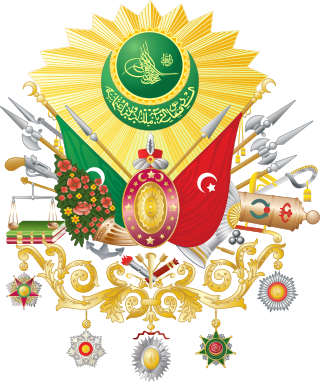
The dissolution of the Ottoman Empire (1908–1922) was a period of history of the Ottoman Empire beginning with the Young Turk Revolution and ultimately ending with the empire's dissolution and the founding of the modern state of Turkey.

Sulejman Delvina, also known as Sylejman Fehmi, was an Albanian politician, who served as prime minister from 30 January March to 14 November 1920.

The Principality of Albania was a short-lived monarchy in Albania, headed by Wilhelm, Prince of Albania, that lasted from the Treaty of London of 1913 which ended the First Balkan War, through the invasions of Albania during World War I and the subsequent disputes over Albanian independence during the Paris Peace Conference of 1919, until 1925, when the monarchy was abolished and the Albanian Republic declared.

Aziz Pasha Vrioni (1859–1920) was an Ottoman-Albanian politician of the early 20th century. He was a member of the Ottoman Parliament representing Berat, and Albanian Minister of Finance and Minister of Agriculture and of Mines.
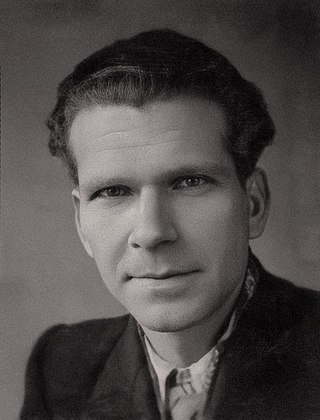
Zef Kolombi was an Albanian painter.
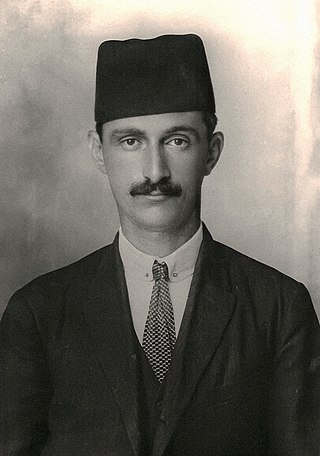
Xhemal Bushati (1880–1941) was an Albanian politician of the twentieth century.

Aqif Pasha Biçaku mostly known as Aqif Pashë Elbasani was an Ottoman Albanian political figure in the Sanjak of Elbasan and after the Young Turk Revolution became an activist for the Albanian national cause.

Risto Siliqi was an Albanian poet, publicist, lawyer, and militant of the Albanian national cause. His work was influenced by ideas and sentiments of the Romantic-Nationalism like other poets of the national Awakening before him.

The Albanian Literary Commission, also known as the Literary Commission of Shkodër, was a scholarly committee established in Shkodër, north Albania in 1916. It gathered major personalities of Albanian literature and writing of the time, and was formed with the aim of defining a fixed literary standard and orthographic rules for the Albanian language which were lacking at the time, in order to encourage the publication of schooltexts.

Gjergj Pekmezi was an Albanian linguist, philosopher, folklorist and diplomat. In 1916, he became a member of the Literary Commission of Shkodër, which established the first standard form of the Albanian language.
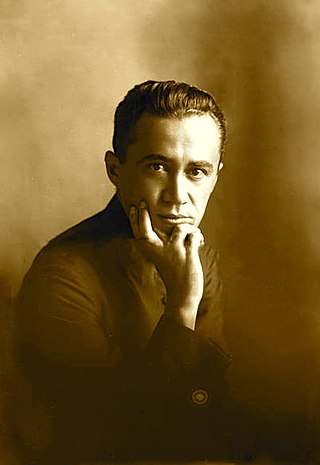
Lazër Shantoja was an Albanian blessed, publicist, poet, satirist, and translator into Albanian from Goethe, Schiller and Leopardi, as well as his country's first Esperantist. He was one of the first Catholic priests, arrested by the communist government, and the first Albanian priest that was shot by a firing squad. He was accepted by the Catholic Church as a martyr in 2016, part of the Martyrs of Albania.

Shkodër is the fifth-most-populous city of the Republic of Albania and the seat of Shkodër County and Shkodër Municipality. Shkodra has been continuously inhabited since the Early Bronze Age, and has roughly 2,200 years of recorded history. The city sprawls across the Plain of Mbishkodra between the southern part of Lake Shkodër and the foothills of the Albanian Alps on the banks of the Buna, Drin and Kir rivers. Due to its proximity to the Adriatic Sea, Shkodër is affected by a seasonal Mediterranean climate with continental influences.
Nora of Hoti or Lula Hoti was an Albanian freedom fighter and local heroine who fought alongside Ded Gjon Luli against Serb and Ottoman armies. Afterwards, during the Zog regime and Communist take over, she was treated badly and interrogated in Shkoder, and his fighters against Ottoman and Serb armies in 1910–1912. Nora Luli was married to Gjelosh Luli, the son of Ded Gjon Luli. Nora was given the "Hero of the People" award.
Haxhi Isuf Banka (Zhelegu) (1864 – September 1, 1944) was an Albanian economist and politician who served as Minister of Finances in the Toptani Government.

Bajram Fevziu (1884–1928) was an Albanian army officer and politician who served as the 4th Chief of the General Staff of the Albanian Armed Forces and as Minister of Internal Affairs in the Sacred Union Government of Pandeli Evangjeli.
